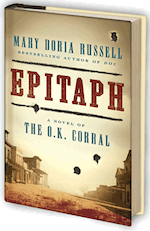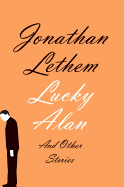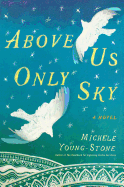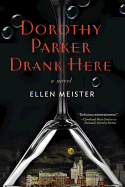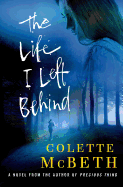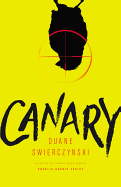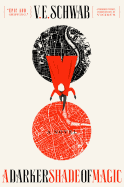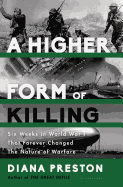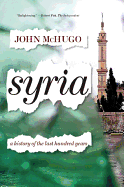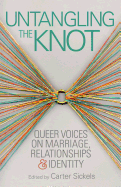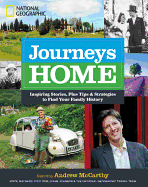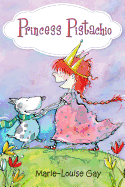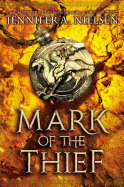 |
| photo: Don Russell |
Mary Doria Russell is the author of five previous bestsellers including The Sparrow, Children of God and Doc. Russell holds a Ph.D. in biological anthropology and lives in Lyndhurst, Ohio. We recently caught up with her to get her fascinating perspective on the Old West and the power of the modern myth.
Why do you think the story of the O.K. Corral is so often retold?
The Greeks call it catharsis. What happened in Tombstone fits the model of a classic revenge drama. Brothers killed; justice denied; revenge exacted. Revenge dramas have been popular since Shakespeare's time.
A century of mythologizing has turned Wyatt Earp into a good man who did bad things for good reasons. That makes it okay to identify with Wyatt and think, "Yes. If my brother were gunned down, I'd want a reckoning, too." But even in 1881, the gunfight was international news and immediately moved to the center of what people believed about frontier justice in the Old West, just as the era was ending. Newspaper publishers found the story irresistible.
Opinions about the gunfight divided along political lines. The Earps were badge-wearing thugs and murderers who killed innocent civilians because of a personal feud; Doc Holliday was worse than any of them, a quarrelsome drunk and a killer. Or, the Earps were valiant lawmen defending their city from violent criminals; Doc Holliday was their loyal friend, a gentleman and a scholar.
There was a lucrative market for either version. Probably the best modern analogy is the Fox News vs. MSNBC coverage of the Trayvon Martin killing, but there have been plenty of officer-involved shootings since that one. Epitaph is tragically topical.
You say, "Who tells the story, and why... that makes all the difference." What makes your take on it fresh?
For 133 years, the gunfight at the O.K. Corral has been a story about men, written by men, told to men, most of whom work indoors and chafe at the modern world's restrictions, and sometimes think yearningly about just plain shooting some sonofabitch who richly deserves it.
I bring a whole different perspective to the subject, and not just because I have two X chromosomes. I'm a cop's daughter. I grew up with guns. Police work was dinner-table conversation in our house. I'm also a liberal Democrat who finds the militarization of the American police forces disturbing and dangerous. So I bring some nuance to the story.
And I wasn't willing to accept clichés about good guys and bad guys. I do a ton of research for my novels. This one drew on very recent biographies documenting the real lives of those who had a part in Tombstone story, but as an anthropologist, I'm interested in how myths develop. Why did an inoffensive alfalfa farmer like Tom McLaury become a bad guy who deserved to die? How did Wyatt Earp become a hero after carrying out the brutal extra-judicial executions of at least five men?
Those questions led me to the influence of Josie Marcus Earp, who saw to it that Wyatt's life was scrubbed, sanded, smoothed and polished until it was shiny enough for people to name their sons after her husband. That required other men to take all the blame for what happened.
I wanted to do better for the dead. I wanted to lay ghosts to rest. That's partly why the novel is named Epitaph.
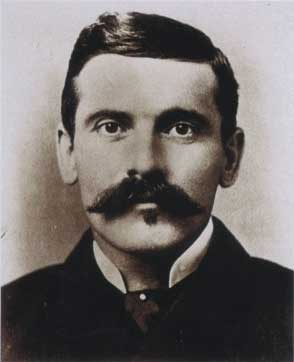 |
| Doc Holliday |
We hear that you went to Tombstone for research purposes.
Yep. It's one thing to absorb a library of books about the gunfight. It's a whole other thing to spend five days on horseback in the mountains and deserts that surround Tombstone. Fifty-eight miles over dangerous, difficult terrain taught me a lot about the physical realities of the hunt for Morgan Earp's killers. I was 60 and healthy; John Henry Holliday was 30 and dying of tuberculosis. I know in my muscles, my bones and my skin what that ordeal must have been like for him.
I think Doc's insistence on seeing it through is a testament to his affection for Morgan Earp, and his grief over Morgan's death, and his determination to bear witness to what Wyatt did.
Do you think you could live in the Wild West?
Oh, dear God, no! Well, I suppose I'd have adapted to it, but the reason I started with Doc Holliday's story is that his experience of the frontier was what we'd feel, if dropped into Texas in 1873. John Henry Holliday was beautifully educated and just starting a fine career as an Atlanta dentist when he was diagnosed with advanced tuberculosis. At just 22, he had to choose between dying young in the lethal, steamy heat of Atlanta, or going west in the hope that the dry air and sunshine could cure a disease that was eating him alive.
Scared, lonely and sick, that quiet, bookish boy found himself on the rawest edge of the American frontier, cut off from everything he loved: music, books, family. He must have felt like he was on the far side of the moon. I suspect we'd feel the same way.
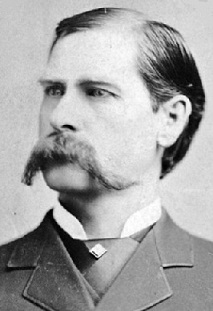 |
| Wyatt Earp |
What interests you about the time period?
It's the beginning of the modern world! Cattle drives, pioneers and isolated boom towns make up most of western lore, but look at what was happening around the world in the 1870s!
The phonograph, telephone, the internal combustion engine and incandescent lighting were being developed. Toulouse Lautrec, Degas, Monet, Pisarro and Renoir were changing the art world.The ballet Coppelia was staged. Bizet's Carmen premiered. It was the era of Tchaikovsky, Verdi, Strauss, Berlioz and Brahms. The popular writers were Dostoevsky, Victor Hugo, Henry James, Anthony Trollope, Jules Verne, George Elliot, Lewis Carroll, Dickens and Tolstoy.
That was the culture John Henry Holliday was born to and educated for, and I wanted to spend time in it.
What made you draw the parallel between this story and Homeric epics?
The Iliad of Homer is rooted in the intimacy of a love story but places the siege of Troy in its national and international context. Homer insists that neither the Greeks nor the Trojans had a monopoly on either honor or brutality. He demands that you recognize the heroism of Hector, the weakness Paris, the pigheadedness of Achilles. He makes you understand the allure of Helen, the faithfulness of Andromache, the fear of the women of Troy. And when the story explodes into battle, rage and pitiless violence, you mourn the dead on both sides of the conflict.
The gunfight at the O.K. Corral and the vendetta that followed it are a Homeric epic for Americans. This story is our Iliad. I wanted to tell both sides of that story, with all its ambition and stupidity, all its bravery and honor, all its love and grief. If you read Epitaph and mourn Tom McLaury as much as Morgan Earp, then I've done my job. I've laid the ghosts to rest. --Jaclyn Fulwood
Mary Doria Russell: Laying the Ghosts to Rest
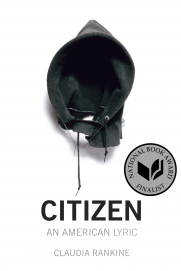 Interjecting cultural criticism with poetry--or rather, injecting poetry with criticism--Rankine carefully and methodically begins to unravel the tightly wound spool of anti-black racism in the United States. "Certain moments send adrenaline to the heart," she writes in her thoughtful, simmering style, "dry out the tongue and clog the lungs." Of the numerous such moments depicted in Citizen, what adrenalized me first were those charting the career of tennis champion Serena Williams, the prejudice she has faced every moment she steps onto the court. I couldn't turn pages fast enough; I hardly dared take a breath.
Interjecting cultural criticism with poetry--or rather, injecting poetry with criticism--Rankine carefully and methodically begins to unravel the tightly wound spool of anti-black racism in the United States. "Certain moments send adrenaline to the heart," she writes in her thoughtful, simmering style, "dry out the tongue and clog the lungs." Of the numerous such moments depicted in Citizen, what adrenalized me first were those charting the career of tennis champion Serena Williams, the prejudice she has faced every moment she steps onto the court. I couldn't turn pages fast enough; I hardly dared take a breath.


